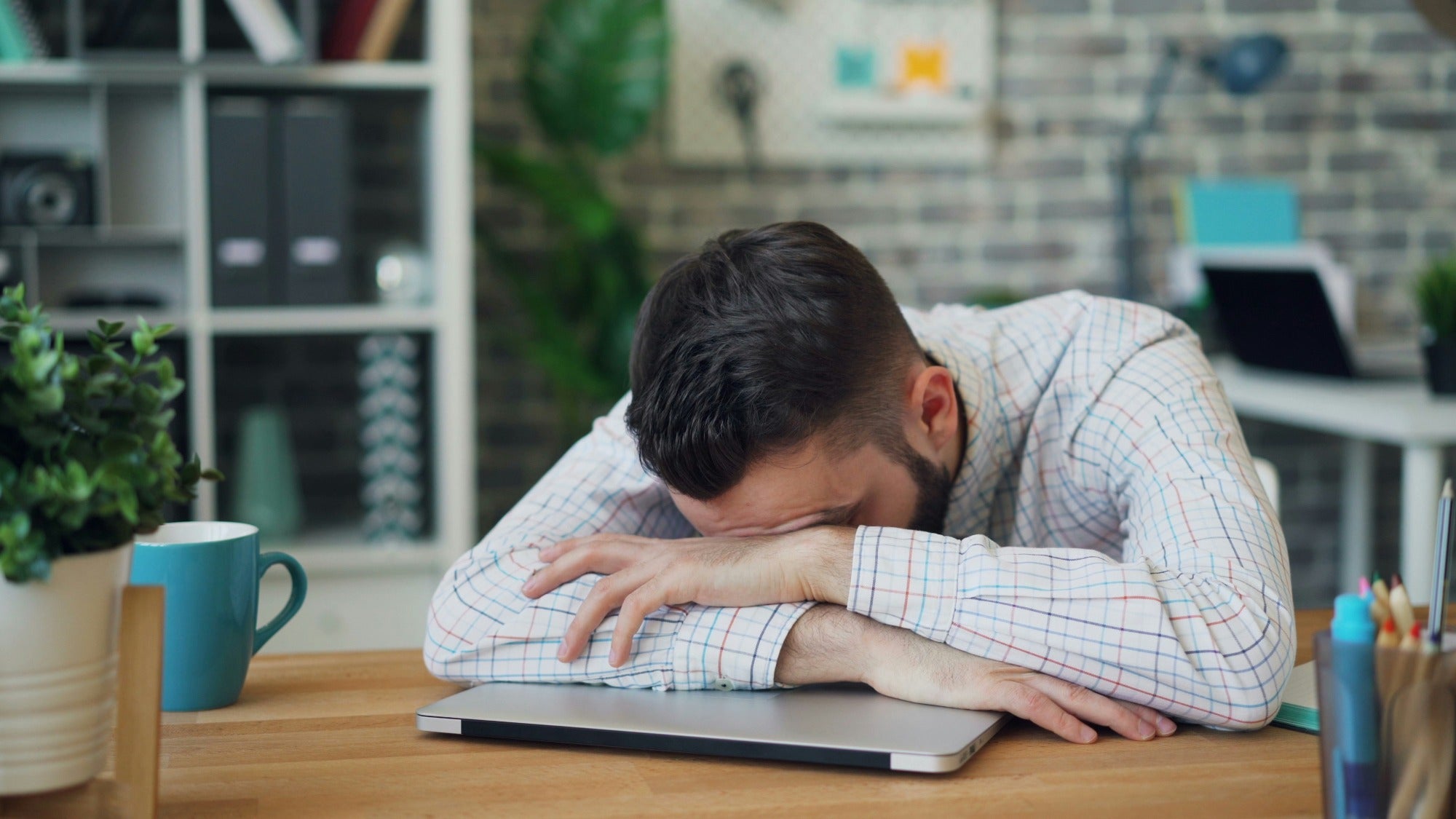
A Brief History Of Cocktails
Cocktails are a pretty standard part of drinking culture today - but have you ever wondered how they came about? The ...
Read MoreOct 11, 2024

It’s no secret that many of us have felt the shock, the horror of waking up after a night of drinking to panic, fear and regret.. We’ve all been there, there’s no shame in it! This kind of immediate anxiety has been coined ‘hangxiety’ or ‘hangover anxiety’. The term refers to the overwhelming sense of anxiety after a big night out of heavy drinking, perhaps followed up with regrets on what you’ve done on this night out. It’s a very distressing experience, it's physically and mentally uncomfortable to sit with, it can cause panic attacks, heavy breathing and just an overall feeling of dread.
In the blog, we’ll look at what hanxiety really is, its symptoms, how long it lasts, why it happens and what we should do about it. We’ll also look at some hangxiety FAQ’s and explore the benefits of low and no-alcohol alternatives.
Hangxiety is a combination of hangover and anxiety symptoms experienced after consuming alcohol. It can make the typical hangover experience much worse by adding mental distress to physical discomfort.
Hangxiety symptoms can vary from person to person, but common ones include:
These symptoms can be distressing and make it hard to function and go by your day in a normal manner.. A study published in Alcohol and Alcoholism found that hangxiety can significantly impair daily activities and cognitive functions ini your brain, making it a serious concern for many people.
The length of your hanxiety can vary person to person and also depend on things like the amount of alcohol consumed, the type of alcohol consumed, whether it’s been mixed with others and just your individual tolerance. Generally, hangxiety can last anywhere from a few hours to a full day. According to research by the Newport Institute, the peak symptoms of hangxiety often occur within the first few hours after waking up and gradually diminish over 24 hours.
Hangxiety occurs due to a combination of physical and psychological factors. David Nutt, a professor of neuropsychopharmacology at Imperial College London, explains Alcohol stimulates neurotransmitters in the brain and the production of GABA (gamma-aminobutyric acid), and glutamate which are responsible for regulating mood and anxiety, meaning that to begin with we feel happy and relaxed as we enjoy those first couple of drinks.
After the initial relaxing effects of alcohol wear off, there is a rebound effect where anxiety levels can spike. The chemicals in the brain are now out of balance, and the body responds by trying to correct the imbalance. So, it attempts to reduce GABA levels, and up glutamate levels.
Then you stop drinking. And once again your levels are out of sync. This time Gaba is very low, and glutamate high, resulting in those unpleasant feelings of anxiety. On top of all of that, bringing in dehydration and poor sleep quality caused by alcohol consumption can exacerbate feelings of anxiety even more.
Hangxiety is particularly intense after drinking because alcohol disrupts the balance of neurotransmitters in the brain, leading to heightened anxiety. Alcohol also affects the body's ability to get restful sleep, which can contribute to increased anxiety levels. The combined effects of these disruptions make hangxiety feel particularly severe.
Hangxiety typically goes away within 24 hours as the body processes and eliminates the alcohol. Staying hydrated, eating nutritious food, and getting rest can help speed up recovery. For some, hangxiety may last longer if they are more sensitive to alcohol or drank a little bit too much.
Reducing hangover anxiety involves taking steps to mitigate the physical and psychological effects of alcohol. Some effective strategies include:
Drinking plenty of water before, during, and drinking alcohol.
Eating a balanced meal before drinking
Limiting alcohol intake
Taking breaks between alcoholic drinks or drinking clean in between, replacing each drink with a non-alcoholic variant.
Practising relaxation techniques like deep breathing or meditation
The tips can help manage anxiety and improve overall well-being after drinking.
By cutting back on alcohol, your chances of experiencing these awful hanxiety effects are less, making you feel like your life is more fulfilled, you have more time in your day to do more proactive things. Exploring no and low-alcohol alternatives is a great way to enjoy social occasions without the negative effects of alcohol. These alternatives can provide the same enjoyable flavours and social experiences without the anxiety-inducing hangover. CleanCo’s non-alcoholic spirits counterparts such as their Clean T (tequila alternative), Clean W (whiskey alternative), Clean R (rum alternative), Clean G (gin alternative), Clean V(vodka alternative) can still be enjoyed in place of the traditional drinks and are designed to be mixed in the exactly same way as the full-strength version just without the fear, dread and regret. By choosing these alternatives, you can enjoy a night out without the worry of hangxiety the next day.
Hangxiety is a distressing experience that combines the physical discomfort of a hangover with intense feelings of anxiety. Understanding its symptoms, duration, and causes can help you manage and reduce its impact. By exploring no and low-alcohol alternatives and practicing mindful drinking habits, you can significantly reduce the likelihood of experiencing hangxiety.
If your symptoms of hangxiety worsen or persist, it's important to speak to a doctor. They can provide guidance and support to help manage anxiety and ensure your overall well-being.
Ready to cut down on hangxiety? Explore our range of alcohol-free alternatives today and enjoy a night out without the next-day dread.
Have we captured your curiosity? Read on
Please enter your details below to sign in
Please enter your details below to register an account.
Forgot your password? No problem just enter your email to reset you password.